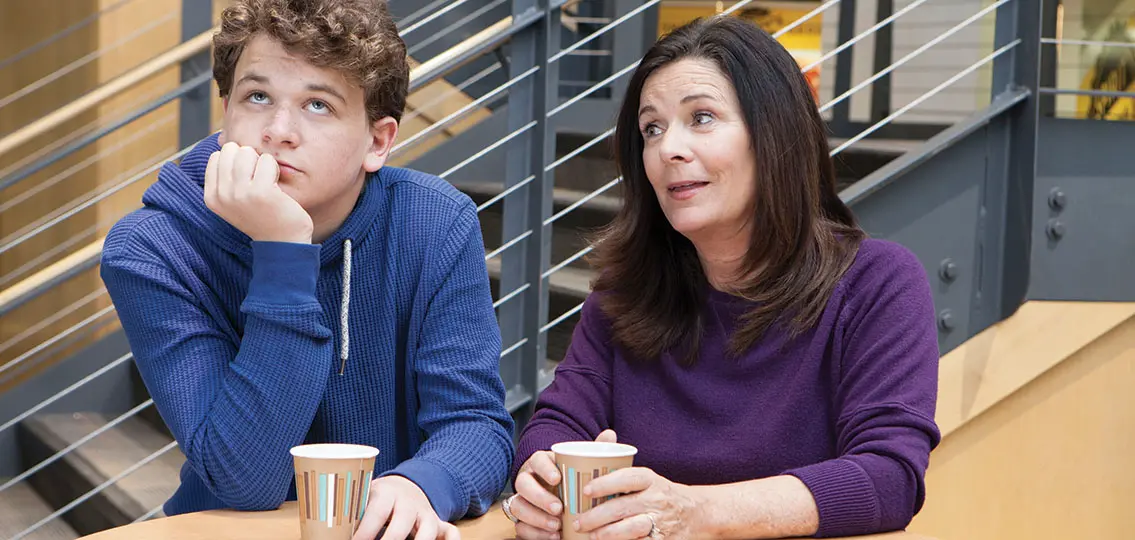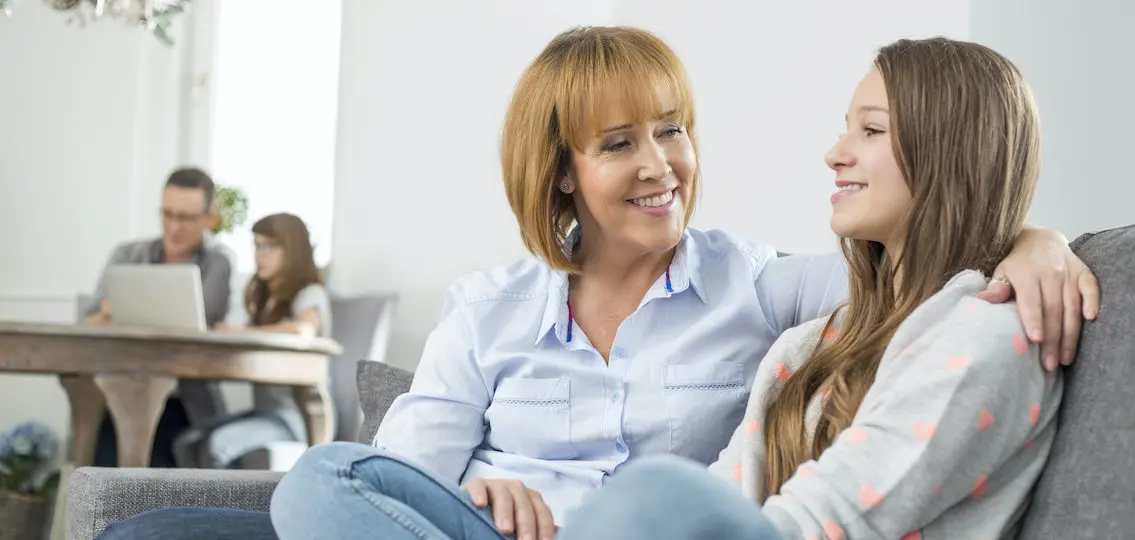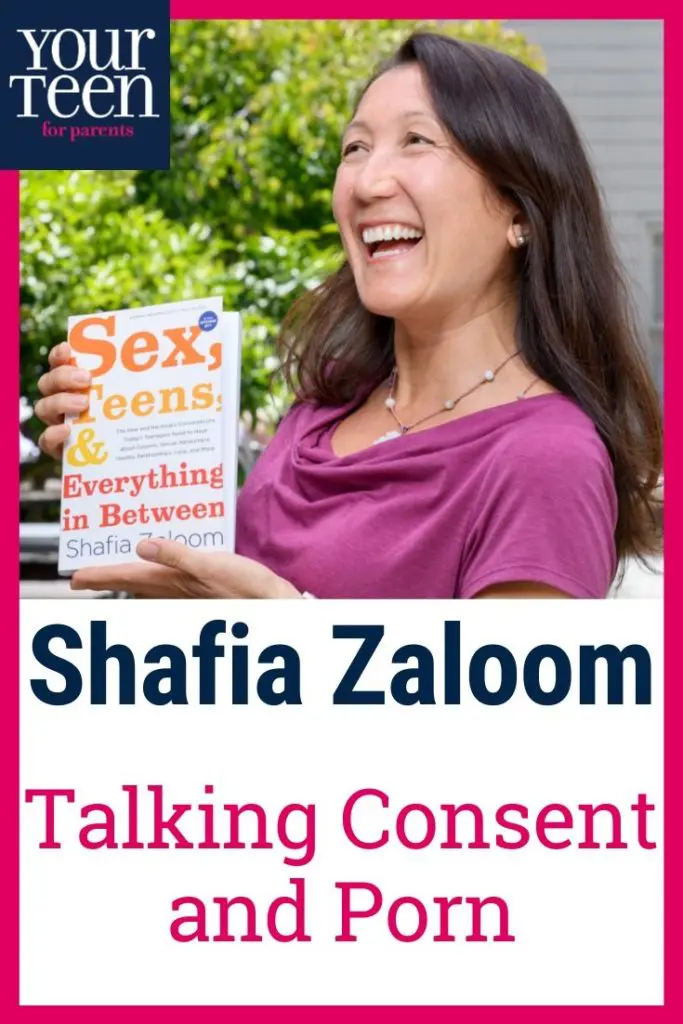Shafia Zaloom, health educator and author of Sex, Teens, and Everything in Between, shares how to talk about consent and sexuality with teens.
| [adrotate banner=”169″] |
Most importantly, Zaloom believes that an environment free of judgement, shame, and ultimatums is necessary for teenagers to to share openly and honestly. Parents need to lead with empathy and suspend judgement. One way to do so is by being curious and asking questions that start with “what” and “how” instead of “why.”
Here are some key points from our interview with her. Watch the full video for more.
French Fries and Consent
Talking about consent is important because teenagers need to know how to communicate the way they want to be treated as well as how to listen when other people express how they want to be treated. I like to talk about consent by making an analogy to a plate of French fries. Most everyone loves French fries. When someone sits down at a table with a tray of French fries, everyone tends to grab for some. More often than not, the purchaser of the French fries is not fully okay with others stealing their fries. But they don’t say anything because they don’t want to be rude or were taught to share.
Thinking about French fries this way leads to the idea of personal ownership and then connects to personal ownership of one’s body. Someone’s body and sexuality belong to only them. Teens have the power to choose how they touch and how they want to be touched.
As a society, we don’t talk about sexuality or consent a lot. And the socialization of kids, particularly the gender socialization, is very powerful in shaping how teens navigate an interpersonal dynamic. Once a parent starts the initial consent conversation, the conversations about how to articulate consent, how to listen to others when they articulate consent, and how to understand others’ reservations about discussing their sexuality will follow.
Teens and Porn
It’s normal and natural for teens to be curious. It’s normal for them to come across pornography, and to look to porn if they’re curious about sex. But watching porn to learn about sex is like watching The Fast and the Furious to learn about driving, or Transformers to learn about physics. It’s not representative of most people’s healthy sexual practices.
As parents, it is important to suspend judgement and help them understand that porn is a narrow representation of what sexuality is and that important healthy sexuality practices aren’t represented in porn. Start the conversation by talking about media as a whole and how media is presented and digested by teens, and how the media presents sexuality. Ask teens what they are watching. Ask what they think of the different characters, and whether they think the relationships being portrayed in the shows are healthy.

Letting the teen be the expert will open the door to talking in more depth about serious things. Once a parent has a comfortable lead in, they can ask their teen if they think porn is common, if there are double standards in porn, and why people turn to porn. After a teen is able to talk about their knowledge of porn, then the parent can discuss what they think is important to know about porn, such as how the people in the scene are doing this contractually, not consensually; the impact of the immediate dopamine response from watching porn on your computer; how watching porn at an impressionable age will shape their sexuality.





